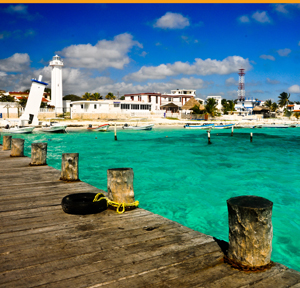Offshore
What Matters For Funds Industry From Cayman Islands Guidance - Laven Partners

Laven Partners, the consultancy on issues such as offshore financial issues, set out what it sees as the most important parts of the new guidance from the Cayman Islands’ financial regulator to the funds sector.
Laven
Partners, the consultancy on issues such as offshore
financial issues, set out what it sees as the most important
parts of the new guidance from the Cayman Islands’ financial
regulator to the funds sector. Meanwhile, it said recent
developments are unlikely to hurt the Caribbean jurisdiction’s
financial services business.
The firm issued a commentary on guidance issued in December last
year by the Cayman Islands Monetary Authority, after the
organisation consulted industry figures. CIMA’s guidance is
targeted at managers, general partners, trustees and board of
directors of Cayman mutual funds - a definition including hedge
funds. The guidance became effective from 13 January.
Main principles in the guidance include oversight functions of
the board of directors or the general partner, who must ensure
that the fund or the fund’s service providers comply with
applicable rules. This verification must be done on an ongoing
basis based on reporting from the service providers, and the
governing body must act to rectify any potential breach.
The document – only nine pages long, which is short in this
industry – does not set out a prescriptive set of rules and does
not claim to cover everything that a governing body does.
Governing bodies, Laven Partners said, are expected to exercise
their own judgment in determining the extent to which the SOG’s
stipulated principles would apply, taking into consideration the
size, nature and complexity of the fund and factoring in elements
such as the assets under management, number of investors, nature
of investment strategy and operations.
Among the requirements are that governing bodies must meet at
least twice a year, or more often should the size, nature and
complexity require, in person, via telephone or by video
conference call; identify, disclose, monitor and manage all
conflicts of interest, and ensure that offering documents contain
sufficient information to enable prospective investors to make
informed investment decisions.
This development happened around the same time that the Cayman
Islands signed the FATCA Intergovernmental Agreement with the US
as well as an agreement for the improvement of international tax
compliance with the UK.
Laven Partners said these developments have led to people asking
if the jurisdiction is still an attractive place to domicile a
fund.
“Fortunately, commentators are in agreement that it is unlikely
the short-term will see any immediate change in the Cayman -
statistics show that 45 per cent of hedge funds managed by
SEC-registered firms are still domiciled in the Cayman Islands,
Laven added.
To register for the Compliance Matters news service produced by
the publisher of this publication, click here.